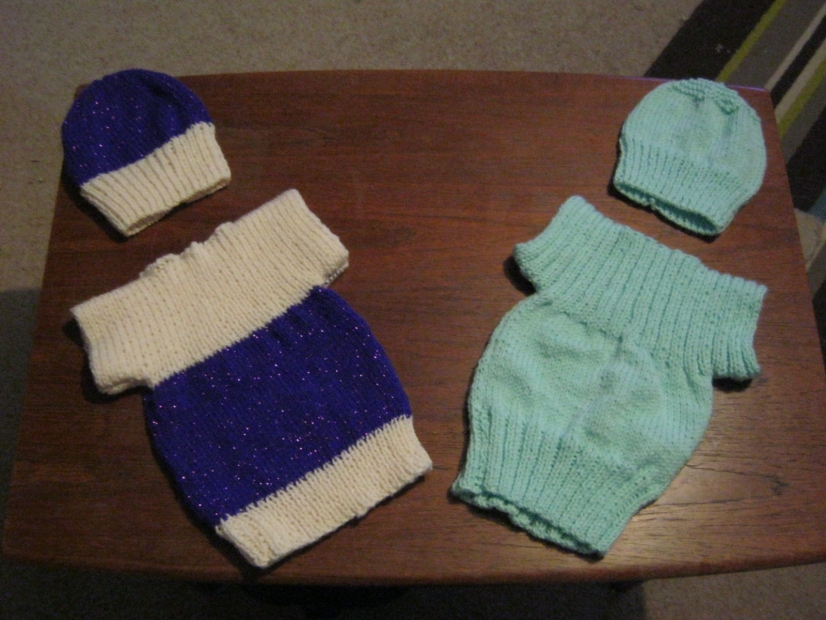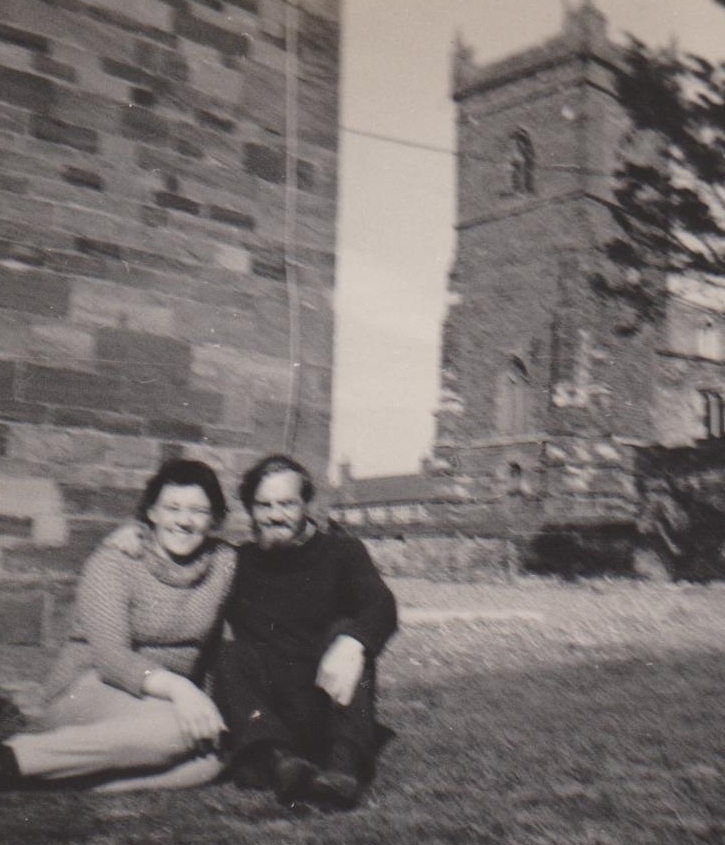Only one chapter today because of my weird thing about even numbers, or at equal proprotions or whatever it is... just be grateful it's not catching! For all that it's a l-o-n-g post.
We've just spent time with Moses up the mountain with Joshua nearby. Moses has a huge list of rules and regulations and instructions for the creation of the tabernacle and the ordination of the priests.
Meanwhile, back at the ranch...
Moses has been gone for such a long time that the people wonder if he will ever come back. There is no sign of him returning, and he has given no clue of how long he will be. Perhaps it isn't so surprising that the people become restless and start to question the status quo.
Open-ended waiting is hard; having leaders who assure you that all will be well and yet nothing seems to change can be frustrating. The people have left the familiarity, and remembered comparative comfort, of Egypt, have travelled a long way, faced some challenges and now feel well and truly let down.
Looking back, I am sure there were times when the good people of Dibley wondered what we at, as it took seemingly forever to get planning consent, and then even longer to sell the site where worship had been conducted for over a century. There were a few who vocalised disquiet but the majority stoically got on with things, trusting God, and trusting the team charged with overseeing this, and trusting the professional advisers. Did we get all of it right? Of course not. But we never faced the situation Moses did when he came back from the mountain.
Chaos and a Calf
The description we have is a sorry one. Aaron (and the elders) seem to have allowed things to get out of control, perhaps adding to the frustration of the people. Perhaps the response to their request to make them a god is the result of an attempt to regain favour. Certainly the people seem to be unified in their endeavour, hand over their gold and Aaron makes for them a calf to be their God. With some slightly confusing language about 'gods', Aaron then instigates "a festival to the LORD" which finds expression in sacrifices before the calf and a good deal of revelling.
I suppose what this makes me wonder is what alternatives are attractive to use when we grow frustrated or impatient with church or with God? And perhaps for my own role, what I my learn from the story... in what ways might I be like, or be tempted to be like, Aaron?
Meanwhile, back on the Mountain... Does God's Mind Change?
Events on the plain are not hidden from God on the mountain - God sees, hears, smells, etc. and is raging mad. So much so that God declares a desire to exterminate the entire population apart from Moses. Moses, however, will still found a great nation (how or what that might have been, we'll never know).
Moses is horrified and pleads with God to spare the people. There are two strands to the argument:
- how will it look to the Egyptians if you do this?
- what about your promised to Abraham, Isaac and Jacob?
And, we are told, God's mind is changed.
Do we ever speak to God like this? Do we ever look around and wonder what other faiths or other people groups will think about the God we claim to worship? How much of what is perceived is about the nature of God (as we understand and claim it to be), or the image of God that our attitudes and actions portray? Do people look at us and think, "well I'm not wanting anything to do with a God like that!"
Do we ever find ourselves reminding God of God's own promises? Not in the twee way I sometimes hear along the lines of "Lord have said in such and such a book, chapter X and verse Y that..." but the big promises of God, the eschatological hope towards which we direct our lives in the present? And if so, what difference do we think that makes, to God or to us?
Does God's mind change? Scriptures tell us it does, or that it can be if the cirucmstances are right (remember the pleading over Sodom and Gomorrah?). And if we think God's mind can change, usually it seems from a position of anger, vengeance and judgement to one of compassion, forgiveness and redemption, then what does that say to us? I wonder who are the people, or people groups we consider to be under divine judgement and for whom we should cry to God to change God's mind? I wonder too, what it might mean if we dared to believe that God's mind has been changed about those who the scriptures identify as cursed or damned...
Strong stuff!
Human Anger...
It is striking, I think, that having persuaded God not to destroy the people, Moses finds himself so utterly furious that he casts down and breaks the stone tablets he has carefully carried down the mountain. Striking, and perhaps resonant... Sometimes I can 'do' the right thing and be professional and calm and rational in one context only to find myself exploding in another. Sometimes it is easy to forgive at a universal, largely hypothetical level, and really hard to do so at a local, personal level.
Moses gets mad and stamps his feet. So, sometimes do I. So, sometimes do we all. Even when we've asked God to be merciful and forgiving.
Perhaps the challenge, for me at least, is to reflect on the nature and purpose of such anger as I experience... what causes it, is it justified and what am I going to do about it, consistent with my faith claims. Are there (and there are) big issues that raise my ire that I ought to be more active in pursuing? Are there aspects of my reaction to small things (and I'm sure there are) that I need to address to make them more healthy?
Who is on the Lord's Side...?
Moses asks this question and the levites say "we are". What happens next is horrific. As demonstration of thier commitment they are sent to kill family members and friends.
I can't find anything positive to say about such an action, and yet even as I type this stream of consciousness stuff, I find myself recalling words of Jesus "If anyone comes to me and does not hate father and mother, wife and children, brothers and sisters--yes, even their own life--such a person cannot be my disciple." (Luke 14:26).
If we believe the words of Jesus to be true, then we still have a jealous God who expects to be Number 1 in our lives. If we are not to 'hate' our loved ones (and let's face it, we are in fact called to love everyone) then still we are expected to put our discipleship first.
I do struggle with this, because I see family and community as gifts of God and vocations in their own right. I struggle because I know all too many families where working for a church has damaged or destroyed relationships. I know too many people my own age whose parents were out every night doing good work, arguably Godly work, who now never cross the threshold of a church. I sturggle because looking back over my own life, I have often been so busy with church or Girls' brigade stuff that I have neglected family and other relationships.
Who is on the Lord's side? Jesus also told us that no-one sets out to build a tower without counting the cost, or goes into battle before they are confident of victory. Perhaps it is useful to remind myself of this, that disicpleship is costly, demanding, slometimes disappointing, sometimes dispiriting, and that I might not always like what it means... and only then to rededicate myself afresh to be 'on the Lord's side' not killing, maiming or destroying those close to me, but at the same time recognising that sometimes there will betough calls to make.
It Wisnae Me
This is an intense and troubling chapter, so perhaps we need just a tiny bit of levity. When Aaron is challenged by Moses about the making of the golden calf he lies in a way that is as funny as it is ridiculous... he lemted down the gold and out popped this golden calf. Aye right.
The dog ate my homework... or the one my Dad evidently once said, "the pigeon frightened the coal hammer" (the context of which is lost in the mists of time)... or as someone once said to my English teacher, "my Mum sold my homework at a tupperware party".... Excuses and lies that are risible and yet can disarm a heated situation... My Dad always claimed he escaped punishment for whatever misdemeanour it was because his own father fell about laughing; certainly the entire English class was in tucks at the idea of an essay on Shakespeare being sold at a tupperware party.
Sometimes I am told that I am too honest, that I say things that would be better left unsaid. Sometimes my best endeavours fall way short of what I'd hope. For personal and historical reasons, I am really uncomfortable with lies and half-truths, even when they are ostensibly 'white' or good'. I get it at a head level but not at a heart level. Sometimes, too, I need to learn not to take myself quite so seriously!
Not sure this goes anywhere, but let's just enjoy the ridiculous image of a golden calf leaping from the flames surrounding the melting pot..!
That's a lot of stuff from one rather troubling chapter, and I've missed quite a few bits. Maybe, just maybe, there is something worth pondering in these ramblings. Maybe if you read/have read the chapter you will find other things to ponder too.

